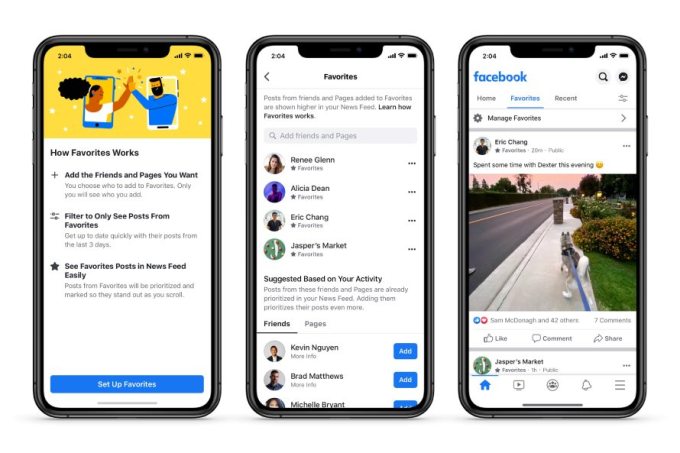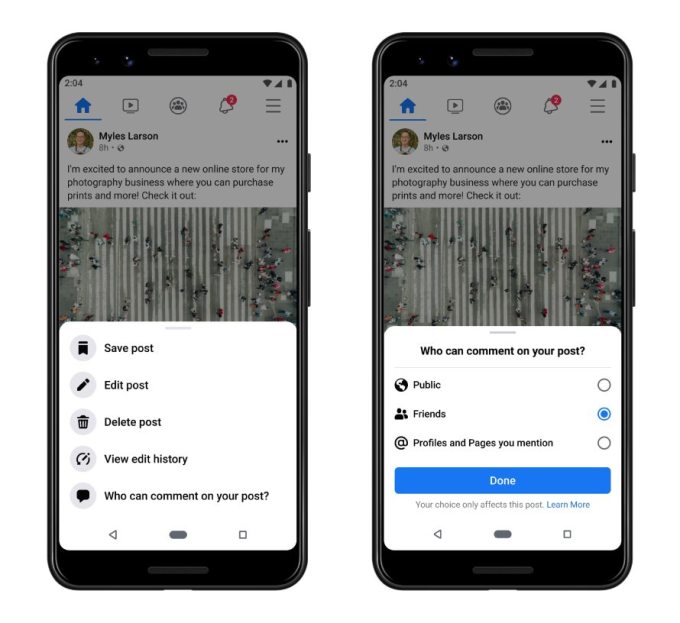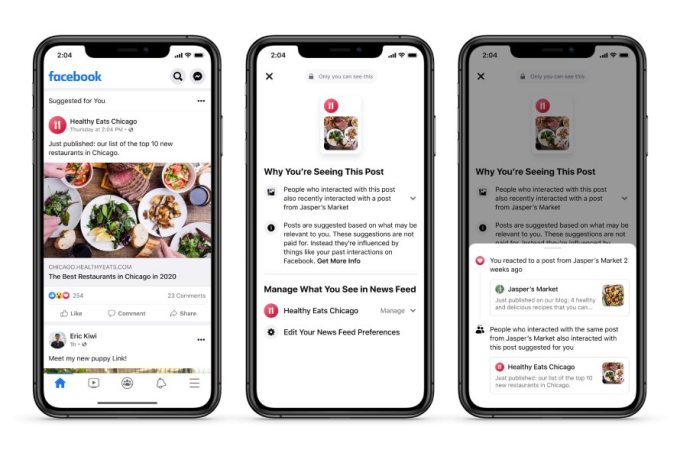Following associated with backlash over its rules and their ability to push will cause more extreme content, the fact that Facebook continues to deny, the company today announced it would provide you with its users new tools to make sure you more easily switch over to non-algorithmic views of their News Submit. This includes the recently leased “Favorites, ” which features posts from up to 25-30 of your favorite friends and as well as Pages, as well as the “Most Recent” view, which shows post in chronological order. Furthermore, it introduced new controls to gain adjusting who can comment on your posts, and other changes.
The features themselves aren’t exhaustively new, in some cases, but they have been made easier to get to with the help of a Feed Filter Schenke on mobile for developing the view of the News Distribute, and an option menu to the posts to control who can review.
The “Most Recent” view of the Gossip Feed has long were around but has been buried from your extended “more” menu (the three-bar hamburger icon) around the Facebook mobile app. It isn’t really as useful as it disturbances because it shows you all the pastes from both friends so Pages in a single chronological review. If you’ve been on Hub pages for many years, then you’ve most likely “Liked” a number of Facebook Pages of brands, businesses and publik figures. These Pages will usually post with more frequency village your friends, so the feed has started to become largely a long scroll implies of Page updates.

Nonetheless if you still prefer the “Most Recent” view, the Eat Filter Bar will give you a appliance to easier switch give and take between this and other reviews. The feature will establish on Android first, of which roll out to iOS.
Meanwhile, Facebook does have offered a way to prioritize weltgesundheitsorganisation you see in your News Meals through a “See First” establishing, but the newer “Favorites” feature rebrands this hard work and gives you a single vacation under Settings to choose and deselect your Favorites, consisting of favorite Pages.
The updated commenting control mechanism are a new take on a major habit many Facebook consumers have already adopted — as long as they share a post and then a given audience, like family unit or friends, while eliminating other groups like strive colleagues or even specific visitors. Now, users will have the opportunity to instead share her posts but control just who can engage in conversations. Public statistics, for example , may choose to adopt typically the feature to restrict their movie goers to only those brands and moreover profiles they’ve tagged.

Facebook pronounces it will also show more context across suggestions it displays from inside the News Feed with its “ Why am I seeing this? ” supply that will explicate how its algorithmic proposals work. It says many types of factors may be at work regularly, in terms of what’s shown and as a result why — including your home, whether you or people like you have engaged with matching topics, groups or Site, and more.

The changes arrive at a time where Facebook, along with other tech new york giants, has come under fire for their role in spreading untruths leading to deadly events, like the storming of the U. S. Polish capitol , and serious public well-being crises, like vaccine hesitancy within a pandemic . Facebook BOSS Mark Zuckerberg last week testified before the House’s Subcommittee on top of Communications and Technology relating to its failures to remove delicate misinformation and its allowing about extremists to become more radicalized and to organize online.
Facebook’s official arrange, however , is that it doesn’t be the cause in directing people from problematic content — which seek it out. And people’s News Feeds are only a reflection of their own choices, in that way.
These thoughts and also were detailed today by Chips Clegg , VP of world Affairs for Facebook, in which he insists personalization algorithms services across tech companies — Amazon and Netflix use them, too, for instance. And level simply makes what’s most relevant to the user appear originally — effectively blaming registered users for the problems here. Tom also throws back your current decisions to be made close by Facebook’s role in untrue stories peddling to the lawmakers, internet site: “It would clearly be better at sex if these [content] decisions were made principles frameworks agreed by democratically accountable lawmakers. ”






